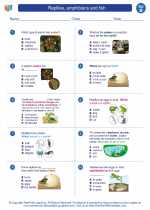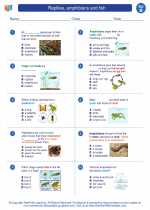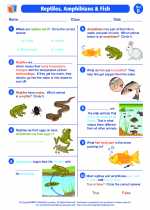Lipids
Lipids are a diverse group of organic compounds that are insoluble in water but soluble in nonpolar solvents such as ether and chloroform. They serve many important functions in living organisms, including energy storage, insulation, and the formation of cell membranes.
Types of Lipids
There are several types of lipids, including:
- Triglycerides: These are the most common type of lipid and are composed of three fatty acids attached to a glycerol molecule.
- Phospholipids: These lipids have a hydrophilic (water-attracting) head and two hydrophobic (water-repelling) tails, making them essential components of cell membranes.
- Steroids: Steroids are lipids with a characteristic four-ring structure. Examples include cholesterol and hormones such as estrogen and testosterone.
- Waxes: Waxes are long-chain fatty acids linked to long-chain alcohols or carbon rings. They serve as protective coatings in plants and animals.
Functions of Lipids
Lipids play several important roles in living organisms, including:
- Energy storage: Triglycerides serve as a concentrated form of energy storage in adipose tissue.
- Insulation: Lipids, particularly adipose tissue, provide insulation to help regulate body temperature.
- Cell membrane structure: Phospholipids are key components of cell membranes, providing a barrier that separates the interior of the cell from the external environment.
- Hormone production: Steroid hormones, derived from cholesterol, play crucial roles in regulating various physiological processes.
Study Guide
Here are some key points to remember when studying lipids:
- Understand the structure and function of triglycerides, phospholipids, steroids, and waxes.
- Be able to explain the roles that lipids play in energy storage, insulation, and cell membrane structure.
- Identify examples of lipids in everyday life, such as cooking oils (triglycerides) and cholesterol (a steroid).
- Explore the impact of lipid imbalances on health, such as the role of cholesterol in cardiovascular disease.
Understanding the diverse roles and structures of lipids is essential for comprehending the biochemistry and biology of living organisms.
.◂Science Worksheets and Study Guides Second Grade. Reptiles, amphibians and fish
Study Guide Reptiles, amphibians and fish
Reptiles, amphibians and fish  Activity Lesson
Activity Lesson Reptiles, Amphibians & Fish
Reptiles, Amphibians & Fish  Worksheet/Answer key
Worksheet/Answer key Reptiles, amphibians and fish
Reptiles, amphibians and fish  Worksheet/Answer key
Worksheet/Answer key Reptiles, amphibians and fish
Reptiles, amphibians and fish  Worksheet/Answer key
Worksheet/Answer key Reptiles, amphibians and fish
Reptiles, amphibians and fish  Worksheet/Answer key
Worksheet/Answer key Reptiles, Amphibians and Fish
Reptiles, Amphibians and Fish  Vocabulary/Answer key
Vocabulary/Answer key Reptiles, amphibians and fish
Reptiles, amphibians and fish 

 Activity Lesson
Activity Lesson
 Worksheet/Answer key
Worksheet/Answer key
 Worksheet/Answer key
Worksheet/Answer key
 Worksheet/Answer key
Worksheet/Answer key
 Worksheet/Answer key
Worksheet/Answer key
 Vocabulary/Answer key
Vocabulary/Answer key

The resources above cover the following skills:
LIFE SCIENCE (NGSS)
Ecosystems: Interactions, Energy, and Dynamics
Students who demonstrate understanding can:
Plan and conduct an investigation to determine if plants need sunlight and water to grow.